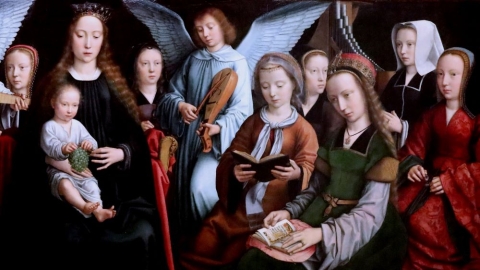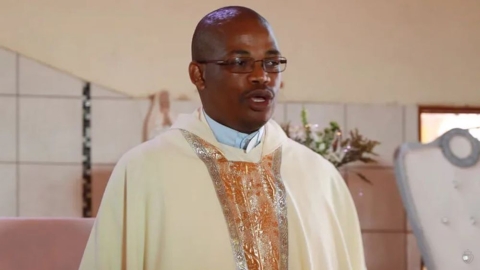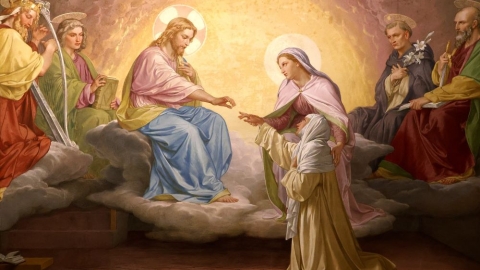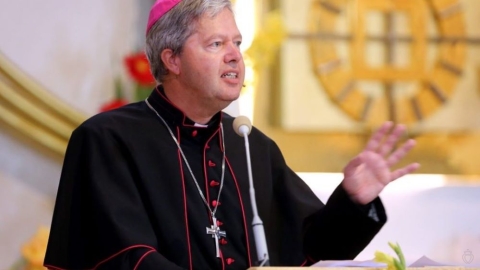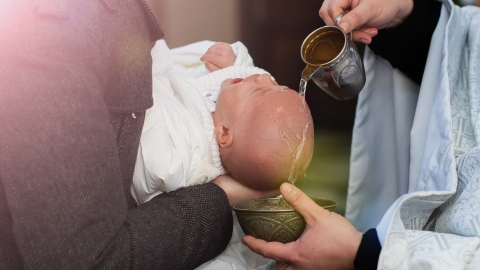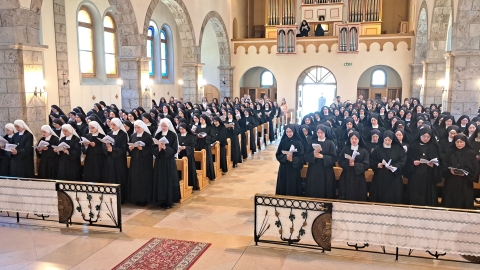Press Review: The Endless Repercussions of Fiducia Supplicans (3)

The significant opposition aroused throughout the world by the publication of Fiducia supplicans did not prevent Pope Francis from stubbornly defending this document which authorizes the blessing of couples not married religiously or of the same sex.
New Dividing Lines Appear in the Church
In the January 18 National Catholic Register, under the explicit title: “Marking One Month of ‘Fiducia supplicans’: Opposition Shows No Signs of Abating,” Edward Pentin questions Roberto de Mattei who, in his response, emphasizes that “a clear characteristic running through the document is ‘modernism’ that ‘affirms fidelity to the Church’s magisterium while, with unscrupulous intellectual acrobatics, it overturns it.”
But the Italian academic also points out that the reactions aroused by this document reveal the new role that the Church in Africa is called to play: “Africa is experiencing the greatest growth of baptized Catholics,” and quotes Cardinal Robert Sarah who declared that the bishops of Africa were “the heralds of divine truth in the face of the power and wealth of certain Western episcopates” who “believe themselves to be evolved, modern and wise in the wisdom of the world.”
In the January 24 Corrispondenza romana, Roberto de Mattei returns to the growing importance of the Church in Africa: “The Symposium of Episcopal Conferences of Africa and Madagascar [SEEAM] brings together 35 national or interregional episcopal conferences, i.e., 669 bishops and 256 million faithful.
“It has been rightly observed that the North African bishops [favorable to Fiducia supplicans] are only 10 bishops in 4 states, and all practically European. Their president is the Spanish Cardinal Cristóbal López, archbishop of Rabat since December 29, 2017.”
What strikes the Italian historian is “the rift which was created, after Fiducia supplicans, within what was called in the years of the Second Vatican Council ‘the European Alliance,’ composed mainly of bishops from Germany, Austria, France, Holland, Belgium, and Switzerland.”
“What gives matter for reflection is above all the gap which has widened between the Belgian and Dutch bishops, taking into account the historical, geographical, linguistic, and cultural affinities between the two countries. The Belgian bishops have, in fact, taken a favorable position on the Dicastery of the Faith’s document, while the Dutch bishops have cautiously but clearly expressed their opposition.”
And to note: “Today, in the formerly very Catholic kingdom of Belgium, the churches are abandoned, and Islam is the premier religion in the country. On September 20, 2022, the Flemish bishops published a document entitled: ‘Being pastorally close to homosexuals.’ Their spokesman Geert De Kerpel declared to the daily Het Nieuwsbladle on December 19, 2023 [the day after the publication of Fiducia supplicans]:
“This is a very big step forward because it comes from the highest body of the Church and because it also explicitly says that same-sex couples can then have a blessing.”
This leads Roberto de Mattei to also anticipate the next conclave: “The existence of a strong contrast between bishops and cardinals within the Church is now a reality that cannot be denied. Nevertheless, the polarization that is being created today is a good thing, if it leads to doctrinal clarification, which could culminate at the next conclave.” – The key is to know if this doctrinal clarification can be done; which supposes an episcopal courage at odds with the courtesan attitude of mitered careerists.
On his site, on February 2, Edward Pentin relayed a Filial Appeal from clerics and laity asking cardinals and bishops to withdraw Fiducia supplicans. According to the signatories of this appeal, the widespread rejection of the document in a large part of the Church is justified.
“What is ‘definitely not justifiable,’ they add, is for cardinals and bishops to ‘remain silent,’ thereby allowing the amplification of a scandal that is already ‘serious and public’ and with the error coming from the Holy See. Above all, they warn that ‘the little ones, the simple faithful’ are scandalized “who have no means of orienting and defending themselves against this confusion.’”
“They therefore ‘fervently implore’ cardinals and bishops to carry out two tasks: ‘forbid immediately the application of this document’ in their dioceses, and to ask the Pope ‘directly’ to ‘urgently withdraw this unfortunate document’ which ‘clearly produces a serious scandal.’”
“The Pope, they conclude, ‘urgently needs’ a ‘fraternal correction,’ in the hope that he will ‘rescue his pontificate and his own person from a stain that could otherwise weigh on him indelibly, not only in history, but in eternity.”
Among the signatories are several well-known names: Roberto de Mattei, president of the Lepanto Foundation, Rome, Italy; Maike Hickson, PhD, Front Royal, Virginia, USA; Philip F. Lawler, editor of Catholic World News, USA; Paolo Pasqualucci, retired professor of philosophy, Perugia Law School, Italy; Aldo Maria Valli, writer, Rome, Italy; John-Henry Westen, co-founder and editor-in-chief of LifeSiteNews, USA.
This approach may seem candid, because it is doomed to failure. In fact, we remember the fate reserved by Pope Francis for dubia, filial petitions, and other petitions. But the important thing is to testify, so that the cardinals and bishops cannot say that they did not know.
(Sources : National Catholic Register/Corrispondenza Romana/Dici n°441 – FSSPX.Actualités)
Illustration : Nacho Arteaga nachoarteaga, CC0, via Wikimedia Commons
